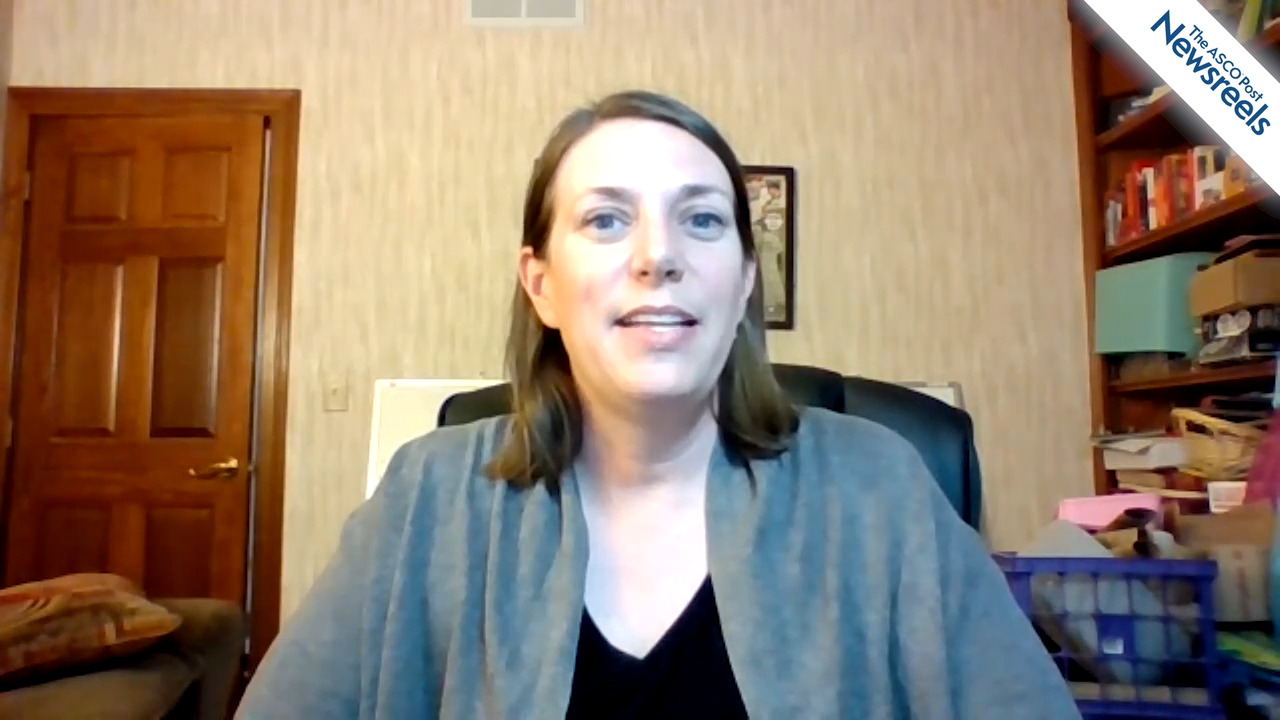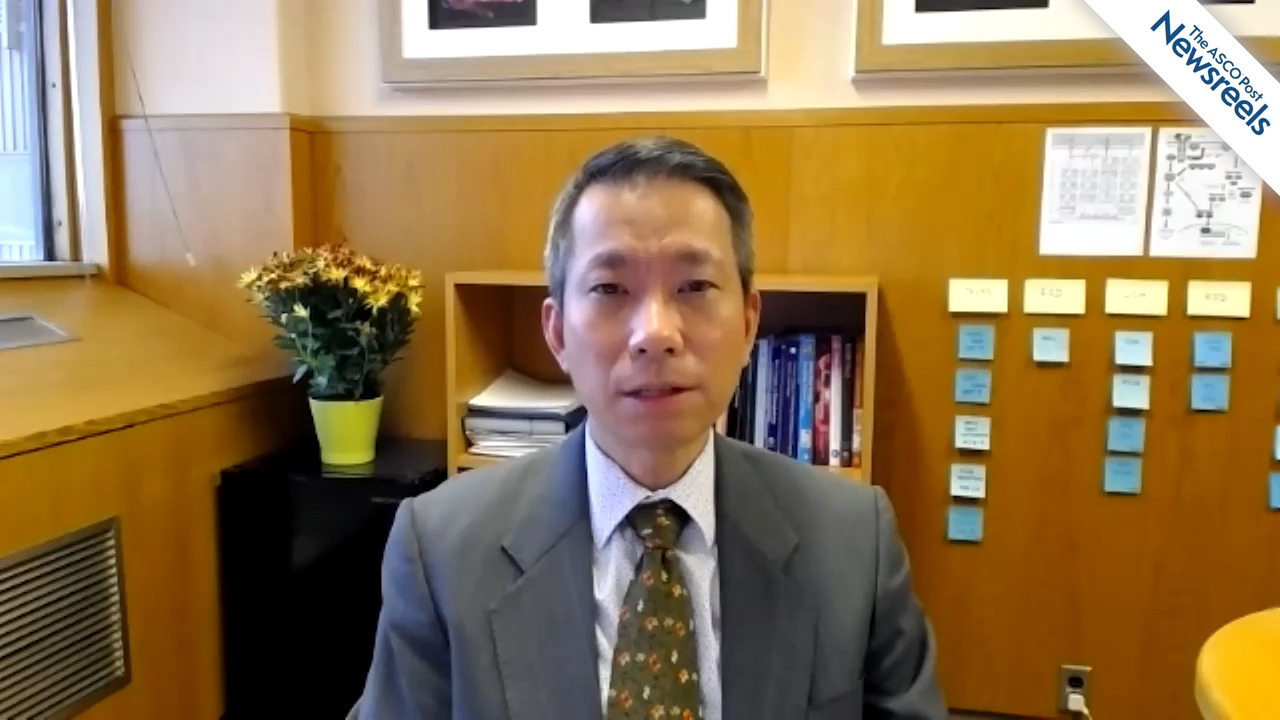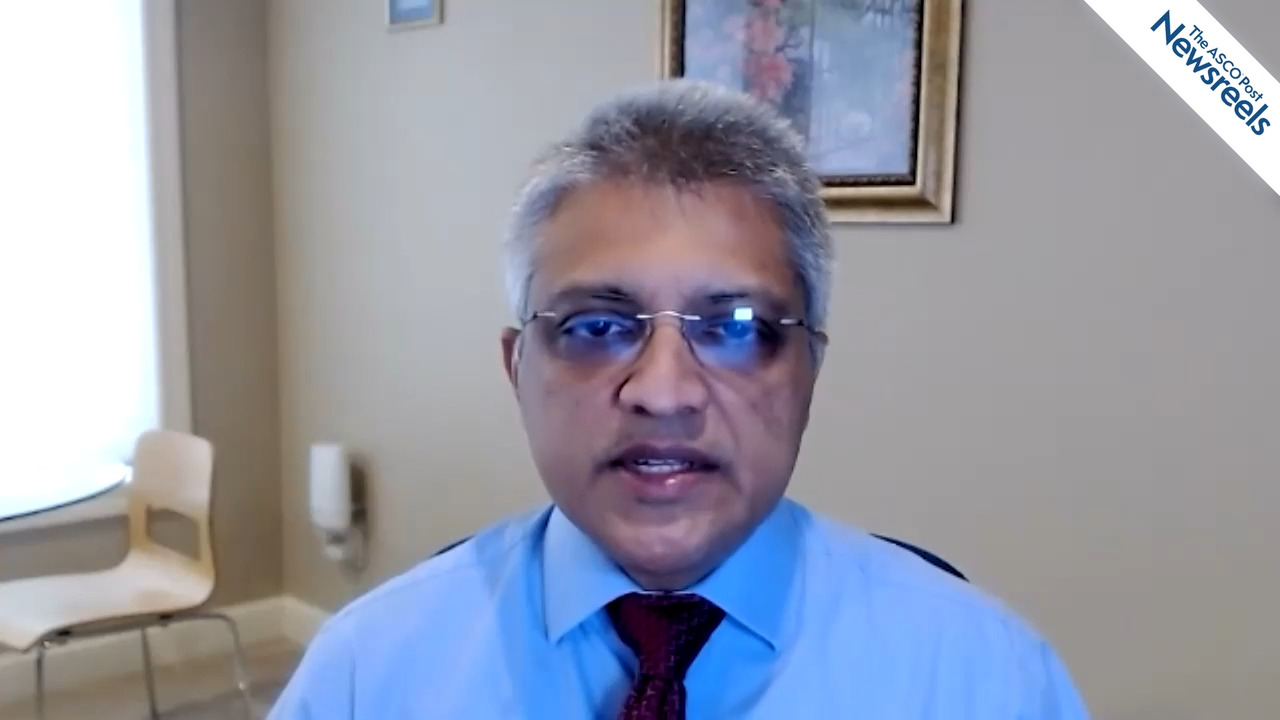Alice S. Mims, MD, on AML: Updates on Managing Newly Diagnosed Disease
NCCN 2021 Virtual Congress: Hematologic Malignancies
Alice S. Mims, MD, of The Ohio State University Comprehensive Cancer Center, discusses the many positive changes over the past 5 years in treating patients with newly diagnosed acute myeloid leukemia in the upfront setting. She also details future directions, including further combining therapies with targeted agents, the potential use of all-oral regimens, and using measurable residual disease as a possible endpoint in treatment responses.
The ASCO Post Staff
Jennifer A. Woyach, MD, of The Ohio State University Comprehensive Cancer Center, talks about whether modifications of treatment based on minimal residual disease is beneficial to patients with chronic lymphocytic leukemia and small lymphocytic lymphoma.
The ASCO Post Staff
Ronald S. Go, MD, of Mayo Clinic Cancer Center, discusses the new NCCN Clinical Practice Guidelines in Oncology for the most common types of histiocytic neoplasms in adults—Erdheim-Chester disease, Langerhans cell histiocytosis, and Rosai-Dorfman disease, all considered rare among hematologic cancers.
The ASCO Post Staff
Shaji K. Kumar, MD, of the Mayo Clinic Cancer Center, discusses the evolving treatment paradigm for patients with newly diagnosed multiple myeloma in which clinical trials are suggesting the addition of a fourth drug to induction treatment regimens and new drug classes are improving treatment for those not eligible for transplantation.



